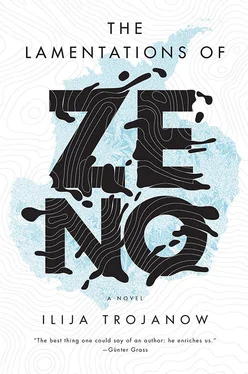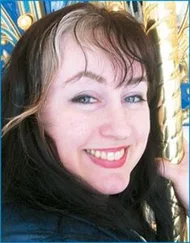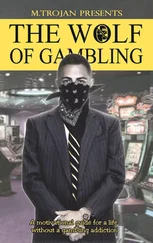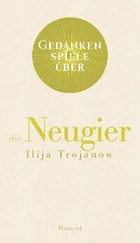In the summer before my glacier died, we packed up all our belongings and then unpacked them. Vacation passed and with it my desire for domesticity. Some couples get pregnant to save their relationship, Helene and I decided to move. From an apartment in Fürstenried to a single family house in Solln. She was supposed to tidy up while I spent another few days on the mountain supervising my students as they measured the degree of ablation. It was a lively group, unusually encouraging and supportive of one another, and I came back to our apartment in an upbeat mood. Not sensing anything amiss, I climbed the stairs, where I ran into the short-statured retiree from the second floor and his exceptionally unfriendly look. I unlocked the door and pushed against it with my shoulder, the wooden panel resisted, I had to press with all my weight just to make it in. A dozen moving boxes had fallen over, some were blocking the door and a few had slid onto the floor where they’d knocked down a pair of rubber boots that were lying between a halfway rolled-up sleeping mat and a torn sombrero. Helene had dismantled everything, hadn’t cleaned up, and disappeared without a trace. I carefully picked my way ahead and found myself standing between remnant skeins of woolen yarn and stacks of framed prints that had been taken off the walls, which were now as naked as they’d been in my childhood home (before Oma bequeathed us her still lifes), the whole place was as jam-packed and jumbled as my room had been during summer vacation, when I took out all my toys, all the figurines and playing cards, all the tokens and dice, and spread them out on the floor and made up my own games which took place on the rug, the table, the bed. In honor of its inventor I christened these tournaments “Zeno’s Olympics,” and before starting I would call out into the hall: “Please don’t come in my room.” Helene could have at least posted a similar note on the door: “Please don’t come in the apartment.” The hall was crowded with open boxes whose contents were hidden by wads of crumpled newspaper, old parkas hung from the coat stand like the branches of a weeping willow, the side tables were piled high with printed matter stacked this way and that, including several years of Burda Style (even if Helene never sewed anything herself, she made sure to save the patterns, as models for some alternative life design), the issue on top dated from the late ’70s, the mannequin on the cover had the same impressive perm as Helene did back then, leafing through I found a page that was missing a piece the size of a postcard. Would Helene really throw away all these magazines, could she let go of her collection of clippings? She kept them in large portfolios — first-aid kits she used to open whenever she was in a bad mood. When her life objectives became blurred by everyday routine she would revisit the pictures of fancy gifts, dream vacations and anti-aging products and readjust her goals. Then she would close the portfolio with a deep sigh, the kind I knew all too well, the oh-if-only-we-could sigh, until finally the day came when I started earning as a full professor. Then we went on our first dream vacation and came back covered with bug bites and sick to our stomachs, that’s what happens when you book something cheap, were Helene’s enlightening words (to avoid a fight I stopped myself from asking what was cheap about the most expensive trip of our lives). From that point on she collected only offers whose price and exclusivity ruled out all risk of disappointment, and these were no longer clippings but whole catalogs with semi-glossy foldouts more lavishly produced than the Alpine photo albums that lay next to the stacks of Burda Style , now as out of date as the desire with which they were once filled. Helene had taken our interior life and turned it inside out, drawers cabinets chests shelves in every room had been emptied and whatever she didn’t fit into a box she flung aside, creating in the process a mixed-media installation of superfluity. She seemed to be curating our entire inventory, people here all seem to inhabit their own museums nowadays. Some of the objects I had forgotten: the electric carving knife, the bread slicer, the yoghurt maker, enough shoe polish for a very shiny eternity, countless sunglasses, belts, purses. I had never noticed how many blazers Helene had acquired over the years, because after all every special occasion demanded a new blazer, they were spread out on the bed, and there were enough to form a small mound, shaped like some prehistoric grave. The Delft majolica that had once belonged to Helene’s grandmother was laid out on the buffet table (tradition is that which is passed on), a few tiles were already wrapped in paper. One of the armchairs was covered with notepads and pens I had picked up at various conference hotels, while my trail maps (lightly curled souvenirs from our longest-lasting common passion) were stacked on a dining room chair, the floorboards under the table were strewn with receipts whose warranties had long expired. How could it come to this, a bedroom full of blazers, a bathroom full of firming creams, a kitchen full of Tupperware, a living room full of rocks, shells, vases, glasses from Christmas markets and wine tastings, souvenir cups (“Gruß aus Oberammergau”) betwixt Mexican bowls and even a Portuguese rooster I’d been talked into buying along with the story of a roasted cock that jumped up from the judge’s plate to crow the innocence of a man who was about to be hanged — how could it come to this, to our possessions driving us out of our home? And there was still the basement, where suppressed like some trauma could be found Christmas ornaments, tinsel and tree stands, rolled up handwoven rugs, three decades’ worth of shoes, and multitudes of music and video cassettes, stage programs and miscellaneous folders — clearly a place to be avoided. In the apartment itself there was nowhere to sit down, every chair was laden with our belongings, the large armchair was buried under various misguided attempts at silk painting, macramé and origami. I perched on a seemingly stable tower of catalogues from the Pinakotheks Old New and Modern and sat there, my feet not even touching the floor, at a loss as to what to do, for the first time in my life I felt the fear of being buried alive. When the telephone rang (it had to be Helene explaining why she left so suddenly and when she planned to come back) I was staring at a small jar of preserves labeled in her convoluted script: “Strawberry preserves with amaretto (1989).”
The captain is not a control freak, but once he takes charge of something, everything has to be done the way he imagines, which isn’t always easy because he ignores details and is so sparing with his speech it’s as though words on board ship were rationed. He comes from up north in Lower Saxony, from a village near Friesoythe, apparently that explains a few things, people who know say the locals there limit themselves to one sentence per day, they start it in the morning and end it in the evening, I can’t say myself, I was only once in Bremerhaven on business and once privately in Sankt Peter-Ording, to me those northern states might as well be a foreign country. Now that we’ve managed to survive a vertically divided Germany unscathed, as far as I’m concerned we could happily divide the country along some middle latitude. “I’ve got this bad feeling in my gut,” says the Captain after a mumbled “good morning.” The way he says “gut” makes it sound like an onomatopoeic expression for bad mood.
“You mean Dan Quentin?”
“I have this bad feeling.”
“I can understand that.”
“The company is keen on the idea.”
“The siren call of fame.”
“We don’t know the man.”
“His manager, on the other hand …”
Читать дальше












